From Craft to STEAM: A Preschool STEAM Holiday Series
This season, we’re reimagining favorite holiday crafts through the lens of play-based STEAM learning.
Each week, we’ll take a classic preschool craft and show you how to turn it into a hands-on STEAM challenge that invites curiosity, creativity, and real problem-solving without adding extra prep to your plate.
First up: the beloved handprint turkey.
The handprint turkey is a preschool favorite, whether it’s made from paint, paper, or colorful feathers.
But what if this familiar craft could do more than decorate your bulletin board or fridge?
With just a few playful tweaks, you can turn this Thanksgiving tradition into a STEAM challenge that helps children explore balance, design, and creativity all through hands-on play.
Step 1: Invite Play: Create and Design
Start with the creative part children love most, making their turkeys!
Materials:
- Construction paper or cardstock
- Crayons, markers, or paint
- Feathers, paper scraps, or leaves for decoration
- Play dough, craft sticks, cardboard pieces, or clothespins (for legs or supports)
- Tape, glue, or scissors
- Optional: googly eyes or recycled materials
- Book pairing: Turkeys by Wendy Strobel Dieker (or your favorite turkey read-aloud)
Invite children to trace their hand (or use handprint cutouts) and turn it into a turkey. Encourage open-ended creativity, there’s no right or wrong way to make it.
Once the turkeys are created, introduce the STEAM twist:
“Can you make your handprint turkey stand on its own?”
This simple question shifts the focus from crafting to engineering.
Children are now testing, building, and redesigning, not just following directions.
Step 2: Observe Wonder: What to Watch For
This is where curiosity takes flight!
Watch how children problem-solve and experiment with different ways to make their handprint turkeys stand up.
- Do they use play dough as a base?
- Are they taping craft sticks or cardboard pieces for support?
- Do they adjust how wide their “turkey legs” need to be?
Teacher Tip:
Listen for the language of discovery:
“It keeps falling!”
“I made legs!”
“Look, mine stands!”
These small comments show engineering thinking and persistence — two key STEAM learning skills.
Step 3: Extend STEAM: Add a Layer of Challenge
Once children have made their turkeys stand, invite new ways to experiment and extend the learning:
Science:
- Test which turkeys stand the longest.
- Explore balance — what happens when you add more feathers or decorations to one side?
Technology:
- Use a small fan to test “wind” — can the turkey stay standing in a breeze?
Engineering:
- Build different types of bases (cardboard platforms, block supports, play dough mounds).
- Try to make a turkey that can move or wobble without falling.
Art:
- Encourage unique designs — experiment with textures, patterns, and colors.
- Create a “turkey parade” display showing all the different approaches.
Math:
- Count feathers, measure height, or compare whose turkey can stand the tallest.
Step 4: Reflect & Share
Gather the class to celebrate their designs and discoveries.
Ask:
- “What did you try that worked?”
- “What did you change to help your turkey stand?”
- “How was your design different from your friends’?”
Reflection helps children see themselves as creators and thinkers and helps teachers spot authentic learning through play.
Teacher Takeaway
You don’t have to give up your favorite holiday crafts to make learning meaningful.
By asking a curious question and encouraging testing and redesign, you transform a simple handprint turkey into a hands-on engineering experience.
When play meets curiosity, even a handprint turkey can teach balance, design, and perseverance.
Keep Exploring
This post is part of our Craft to STEAM Holiday Series!
Check back next week for:
The Cardboard Christmas Tree “Winter Wind” Challenge
and more simple, hands-on ways to make your holiday play meaningful.
Want even more ready-to-go STEAM invitations?
Explore the Preschool STEAM Membership for seasonal Play Guides and Tinker Tub challenges that make every theme hands-on, meaningful, and fun.
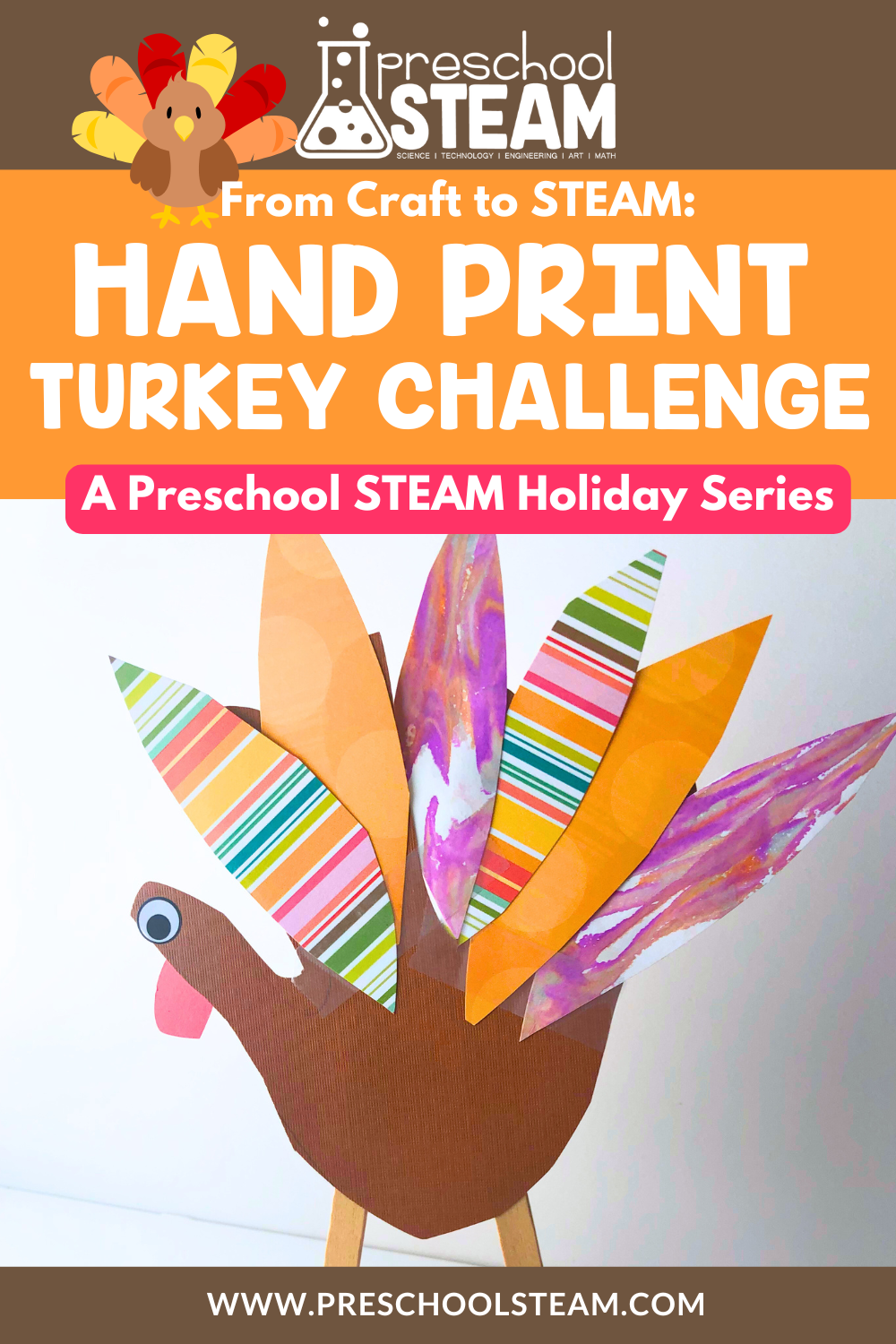
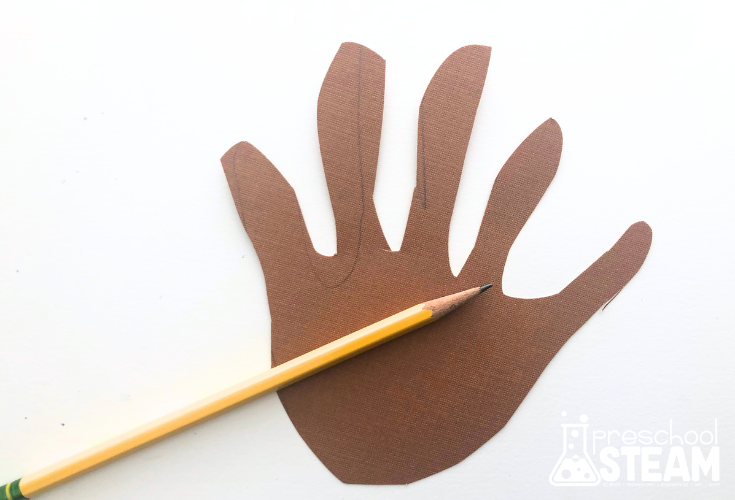
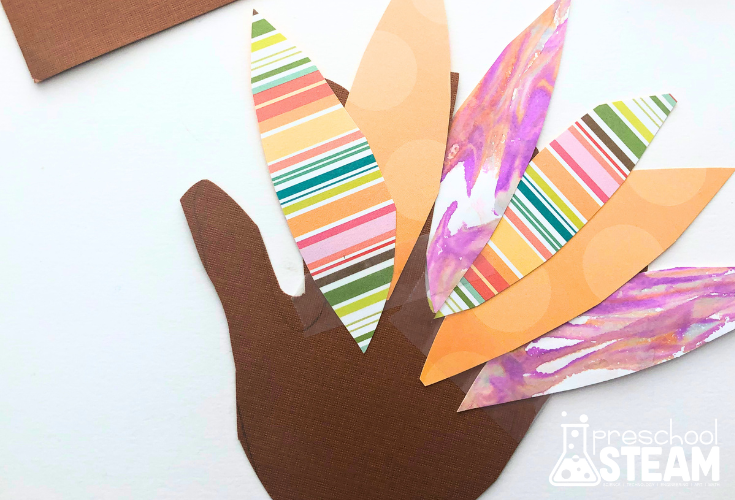
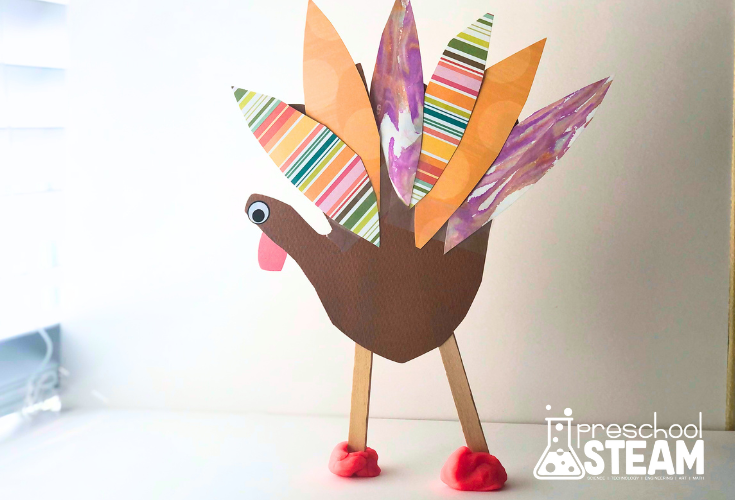
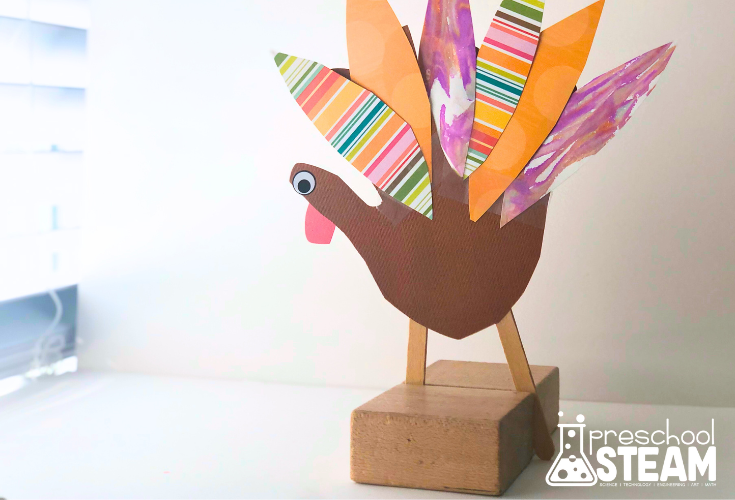
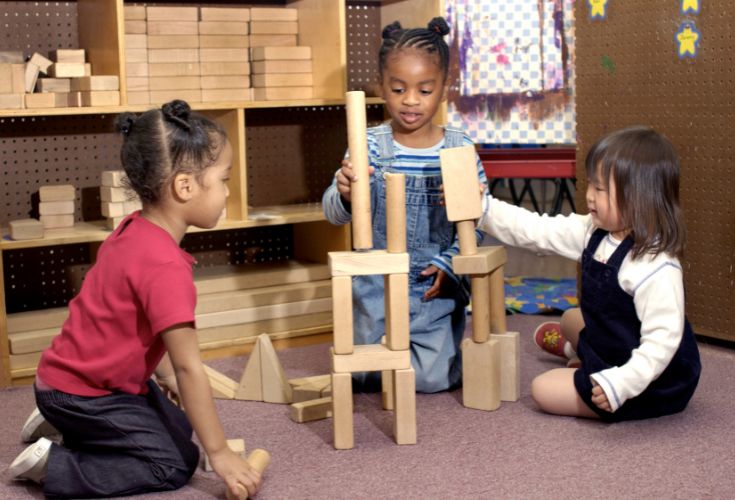
Leave a Reply